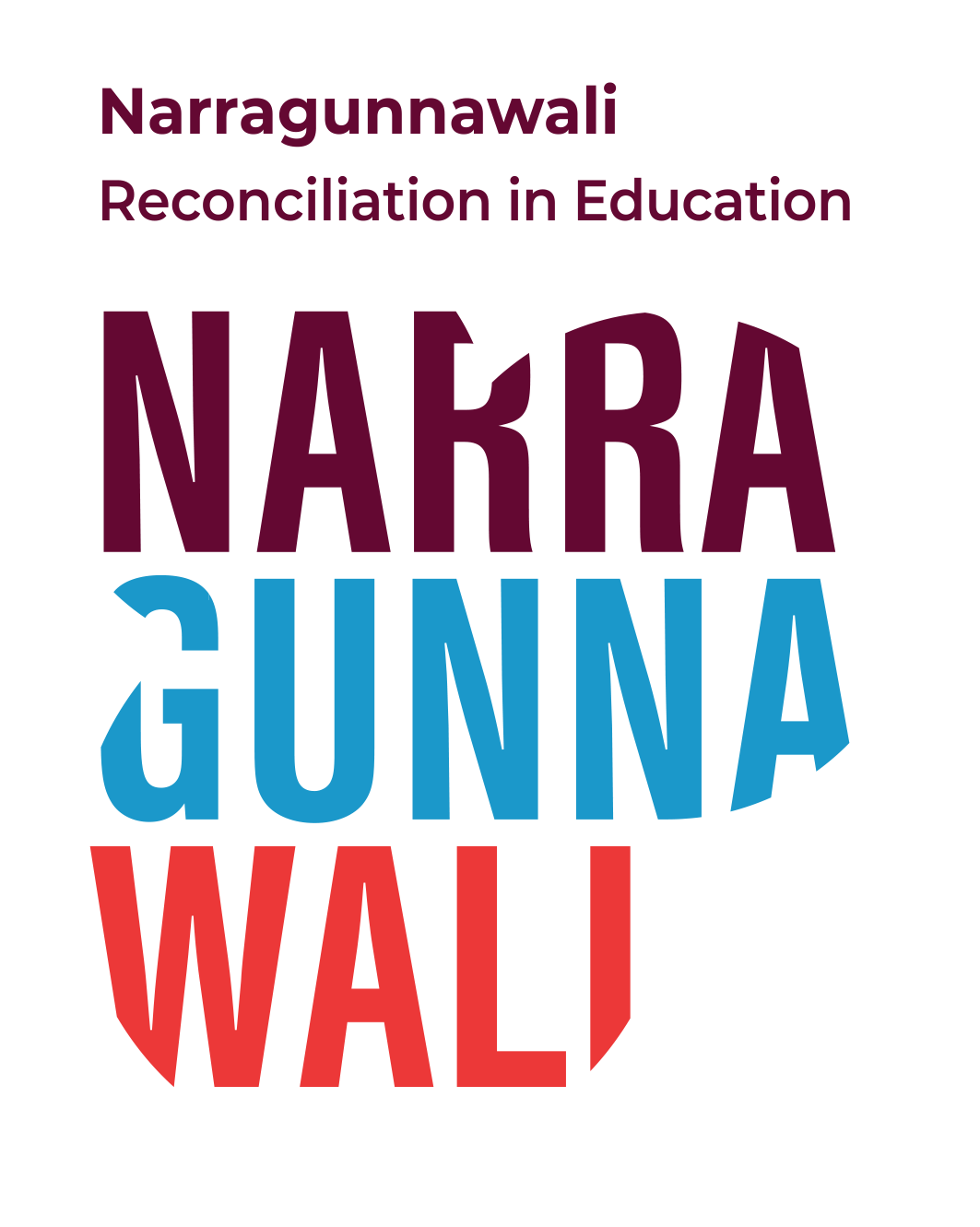Spotlight on – Narragunnawali Awards Finalists
This year, Narragunnawali will host the 3rd Biennial Narragunnawali Awards. We received applications from schools and early learning services in every state and territory, which were long and short-listed, and then our judging panel selected six finalists.
We were unable to visit each location in person due to COVID, however we used Zoom and this proved to be a great and engaging success. The Awards ceremony will be held as part of the Australian Reconciliation Convention, along with a panel session with each of the finalists from each category. Tickets for the Awards Ceremony can be purchased here, free of charge.
Narragunnawali congratulates all the schools and early learning services that applied and have taken on the challenge of learning, sharing, and growing their journey towards reconciliation in their community.
Congratulations to each of the six finalists listed below!
Schools Finalists
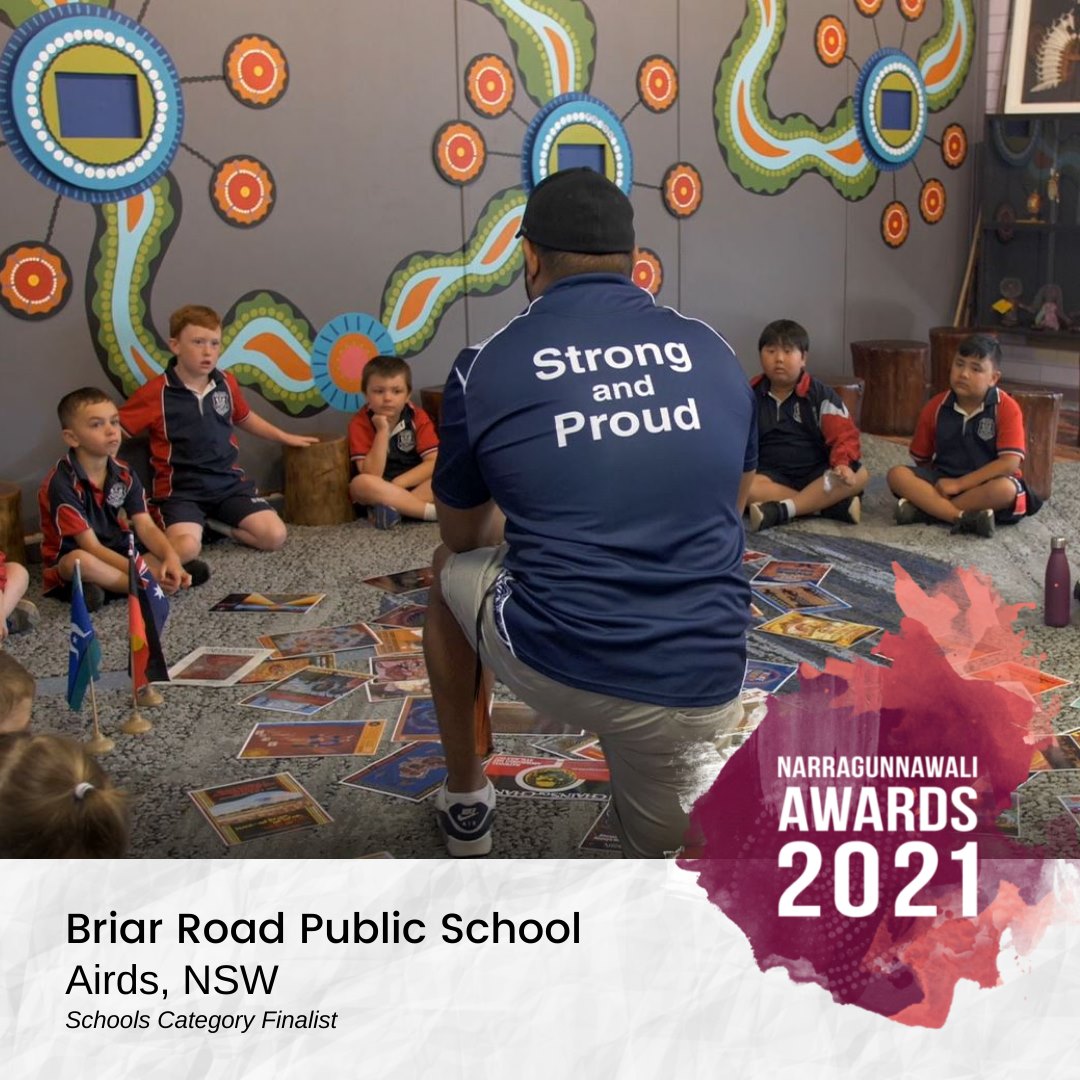
Briar Road Public School, New South Wales
Briar Road Public School, on Dharawal Country in Campbelltown, Sydney’s Southwest, is committed to ensuring the process of reconciliation is a living action that occurs each and every day within the school. Aboriginal and Torres Strait Islander cultures are celebrated, shared and acknowledged to promote knowledge, inclusion and respect between the school community – reconciliation is the responsibility of everyone.
“Our school believes that a fair, just and reconciled school supports equal and equitable outcomes and opportunities for Aboriginal and Torres Strait Islander people. All students, staff and community work together to create a shared understanding of the importance of reconciliation” (from Briar Road Public School’s Vision for Reconciliation).
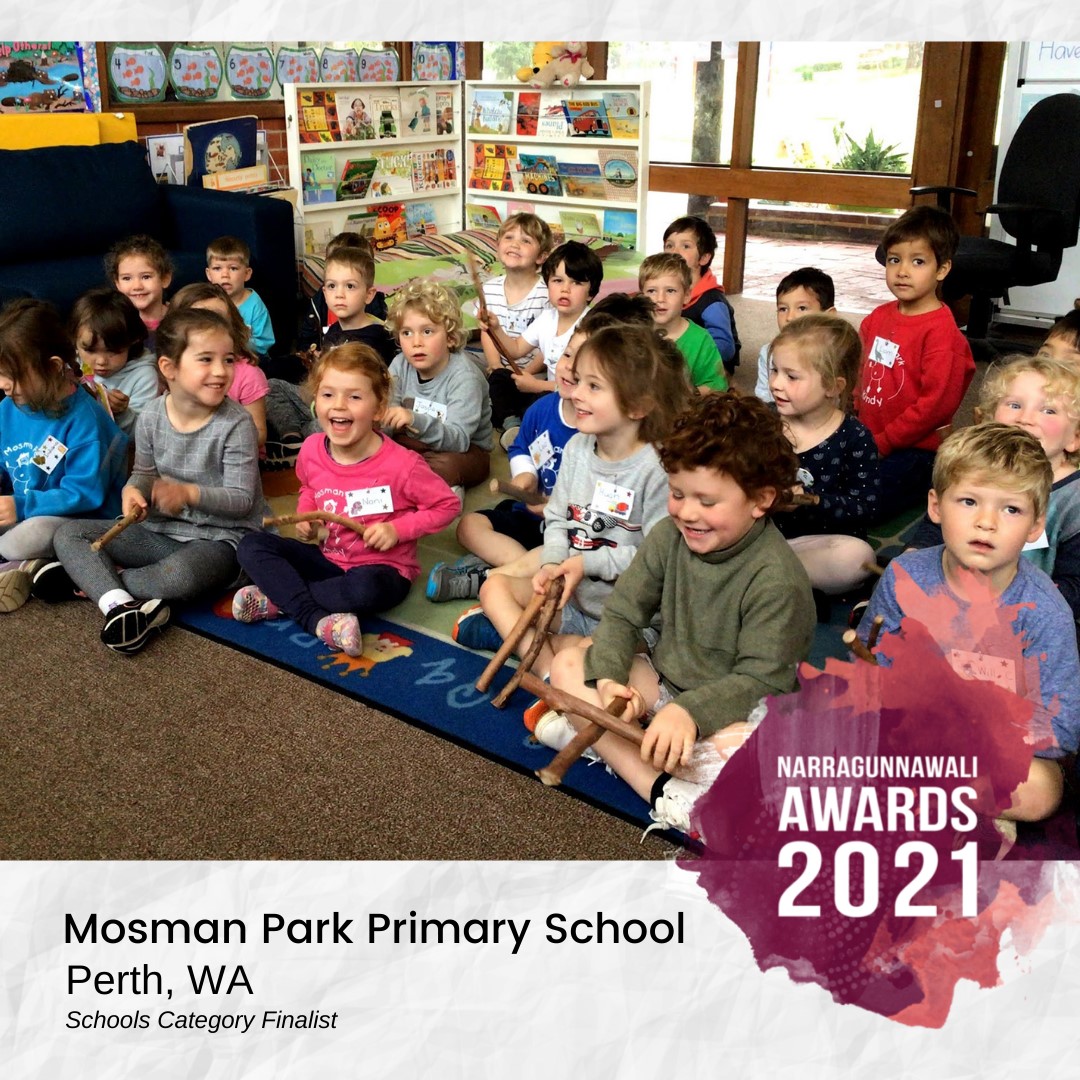
Mosman Park Primary School, Western Australia
Mosman Park Primary School, on Whadjuk Country, in Perth WA, has created a three-step vision for reconciliation: Listening, Learning and Leading. By using these three principles the school activates a living version of reconciliation at a whole-school level.
“LISTEN - For the benefit of all; to celebrate, embrace and take pride in the richness of Aboriginal and Torres Strait Islander cultures and stories. LEARN - By acknowledging past wrongs and move forward; deepening our understanding and valuing of Aboriginal and Torres Strait Islander cultures, heritage and connection to Country/Land. LEAD - Through the creation of opportunities for respectful and equitable cultural partnerships within our community and beyond, by embedding knowledge of our Noongar geography, culture and language” (from Mosman Park Primary School’s Vision for Reconciliation).
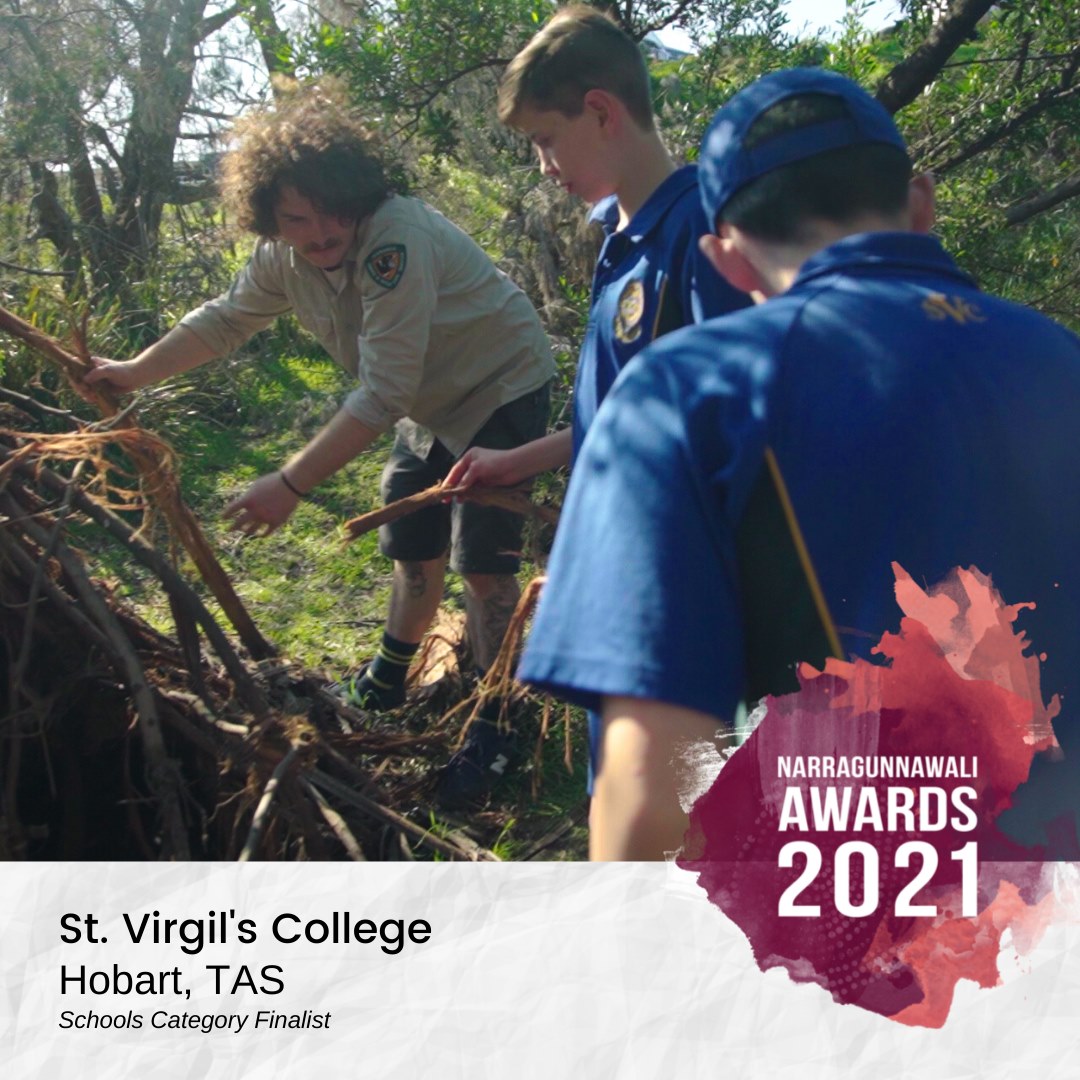
St Virgil’s College, Tasmania
Situated on the lands of the muwinina people, in Hobart, Tasmania, St Virgil’s College is a Catholic School for boys in the Edmund Rice tradition and draws inspiration from its ethos of inclusive practice in recognition of the First Nations peoples of Australia – upholding spirituality, rich cultural tradition and knowledge in storytelling, and care of Country. St Virgil’s College has committed to embedding a truth-telling curriculum to ensure the invasion story is told.
“St Virgil’s College has committed to embedding a truth telling curriculum into classroom learning, developing practical and meaningful reconciliation initiatives around both campuses of the school and is seeking to invite and listen to Tasmanian Aboriginal voices throughout our entire College community” (from St Virgil’s Vision for Reconciliation).
Early Learning Finalists
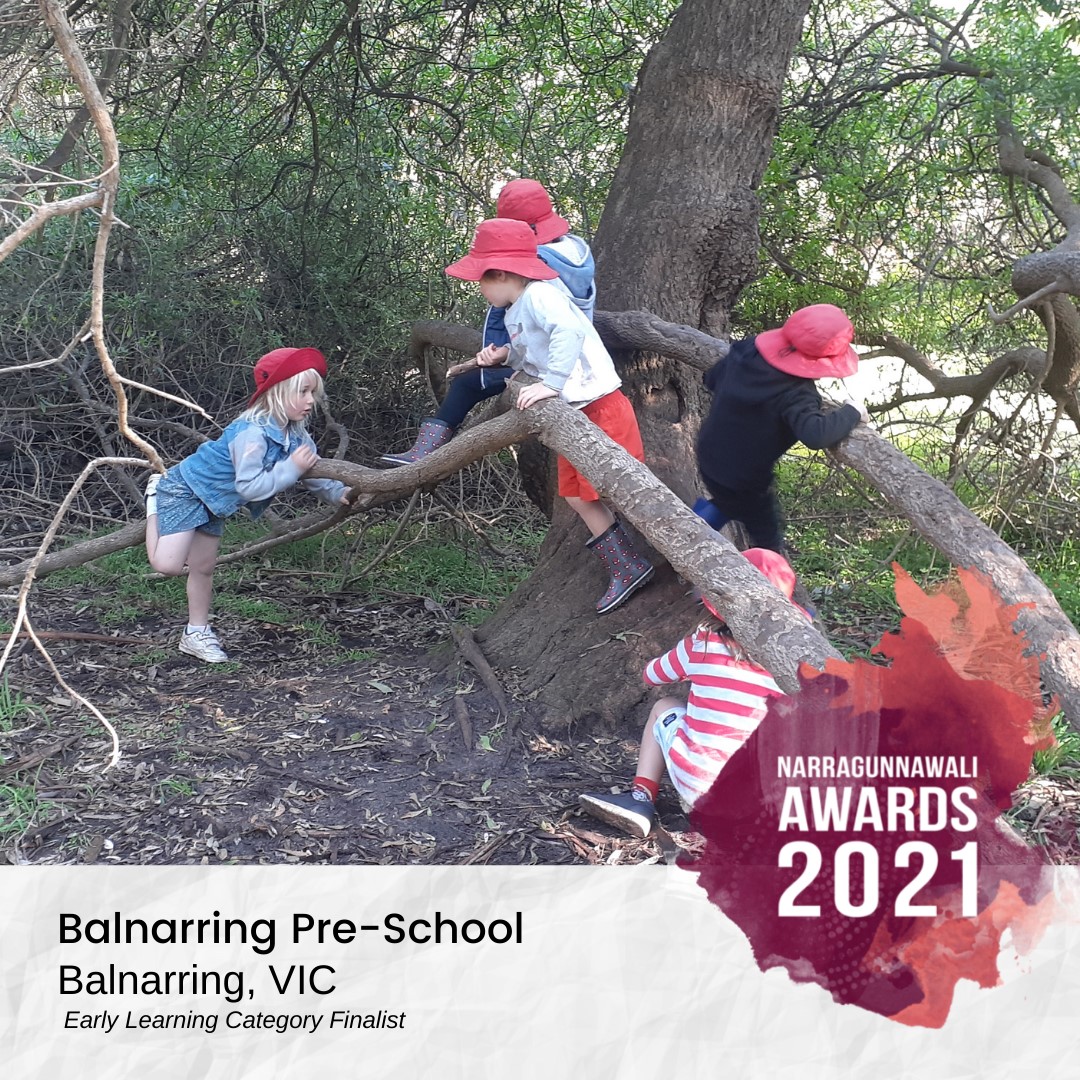
Balnarring Pre-School, Victoria
Balnarring Pre-School, located on the Mornington Peninsula in Victoria, recognises the importance of children learning the histories and cultures of Australia’s First Peoples, in order to form a society that respects diversity and celebrates relationships, unity and connectedness. Balnarring Pre-School’s philosophy weaves learning with First Peoples everyday as an act of reconciliation.
“We acknowledge reconciliation to be on a continuum, as our knowledge and understanding deepens and our teaching practices reflect that learning. The teaching team will regularly engage in professional development to obtain deeper understanding and increased confidence for that knowledge to guide curriculum development” (from Balnarring Pre-School’s Vision for Reconciliation).
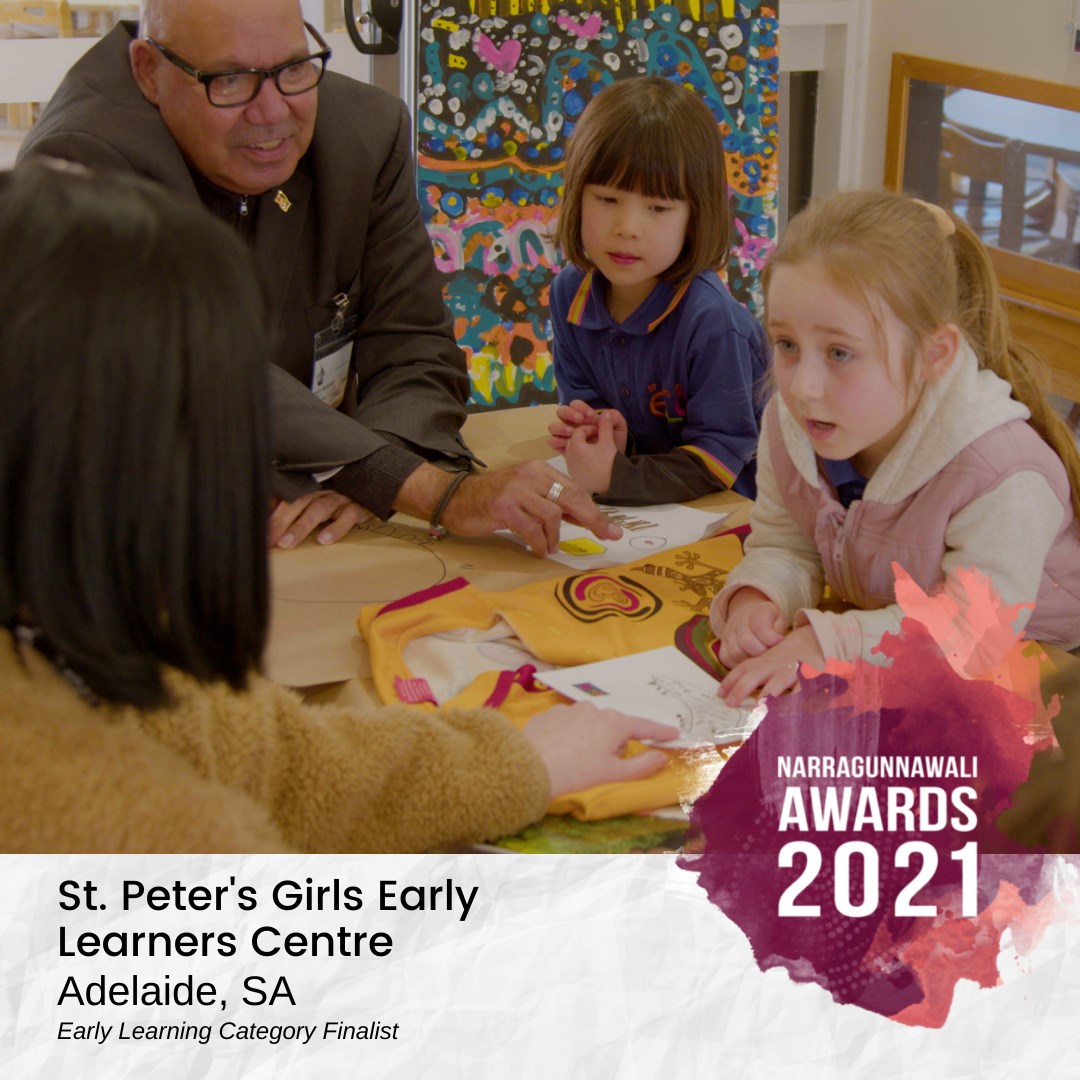
St Peter’s Girls Early Learners Centre, South Australia
Located on Kaurna Country in South Australia’s Stonyfell, St Peter’s Girls’ Early Learners Centre moves towards reconciliation by fortifying formative relationships with First Peoples, their Lands, cultures and spiritualties, in their deep-learning about First Nations cultures. There is a strong emphasis on ensuring children have knowledge of and respect for shared Australian history.
“As a community of learners, we strive to build and strengthen relationships with Aboriginal and Torres Strait Islander peoples; to learn about First Nations cultures; and to uphold the values of inclusivity, respect, care and cooperation” (from St Peter’s Girls Early Learning Centre’s Vision for Reconciliation).
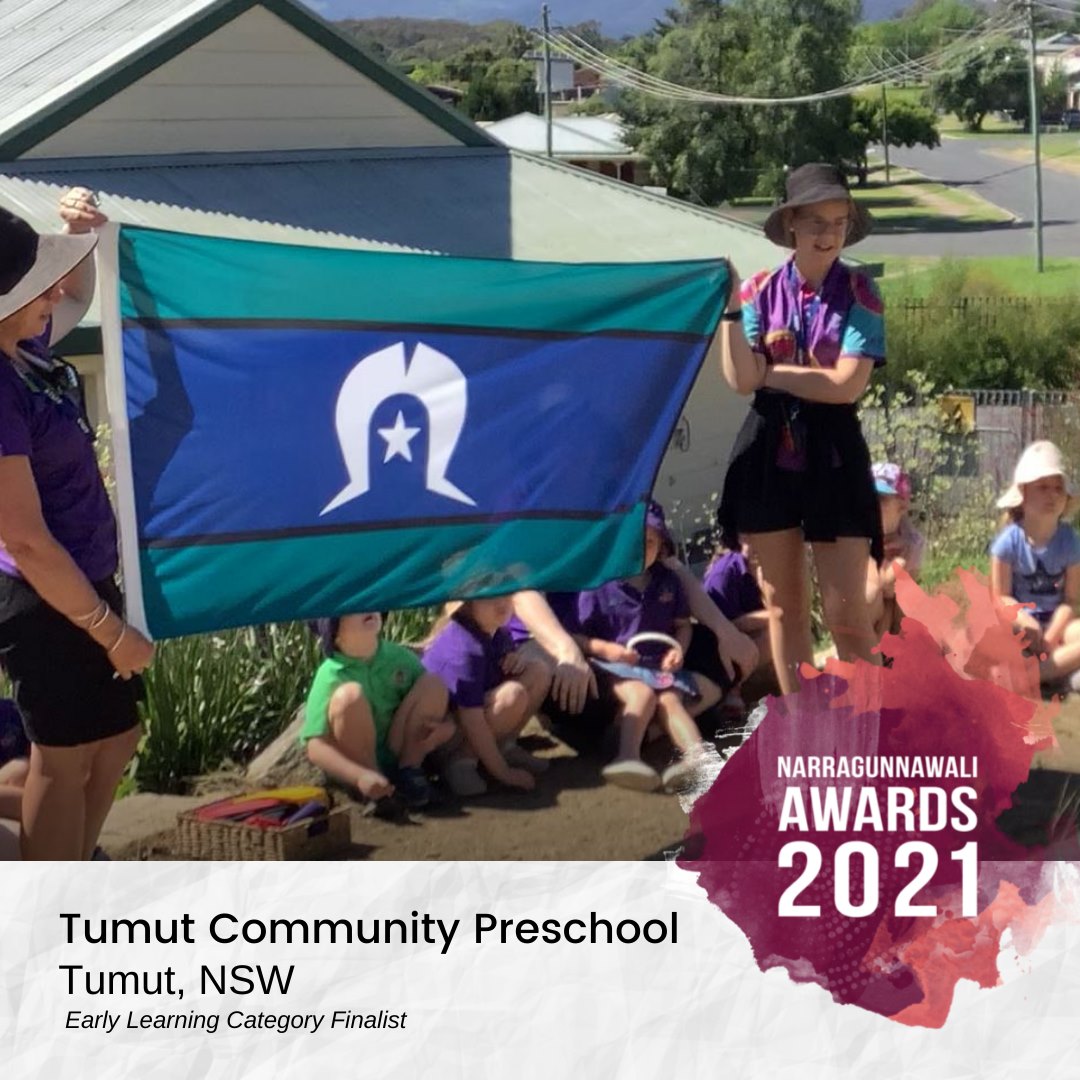
Tumut Community Preschool, New South Wales
Tumut Community Preschool, located on Wiradjuri Country, empowers its children and staff to respect, acknowledge and celebrate Aboriginal and Torres Strait Islander histories and cultures. With a strong commitment to social justice, all staff pledge to challenge racism within the service and broader community.
“Our vision at Tumut Community Preschool is to empower children to respect and acknowledge the unique cultures of First Nations peoples… Our view is that children will be the catalyst for true reconciliation” (from Tumut Community Preschool’s Vision for Reconciliation).
-
18 Apr 2024Narragunnawali News and Updates
-
18 Apr 2024Teacher Feature – Sherri Bryers, Tasmania
-
18 Apr 2024Civil Discourse: Post-Referendum for schools
